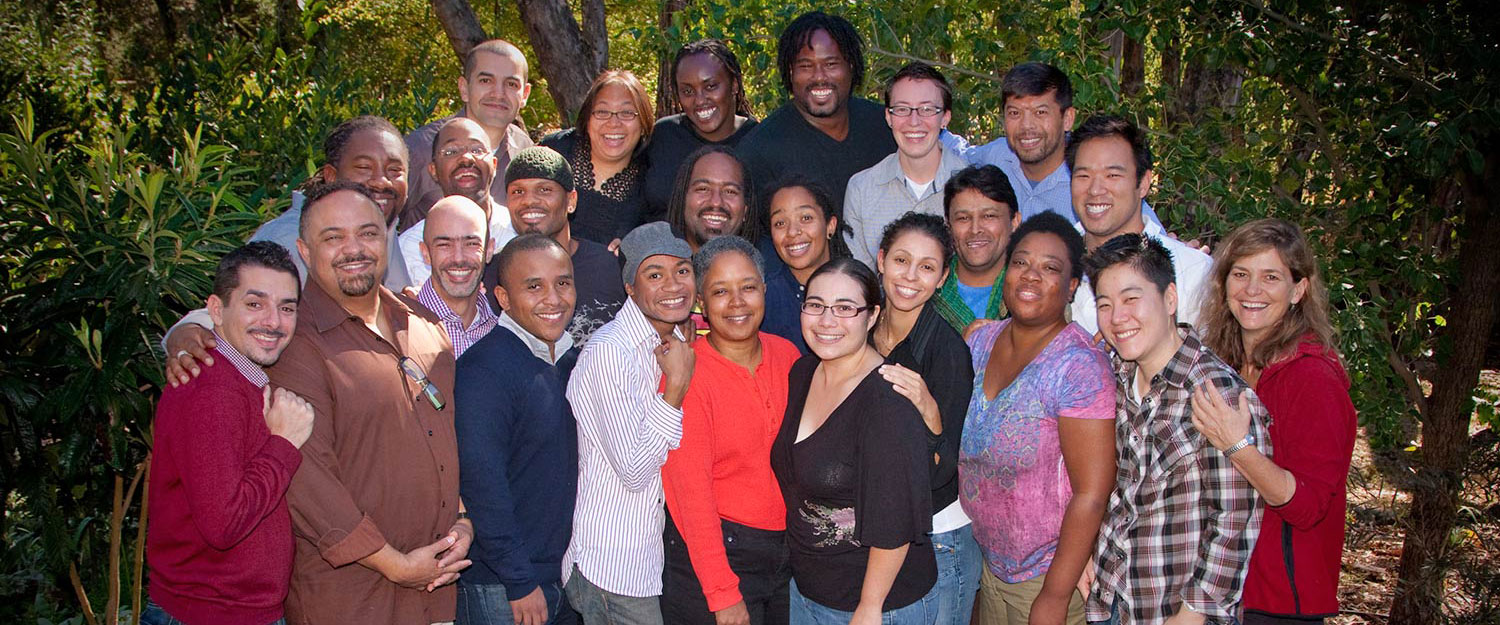The most important issues LGBTQ people of color and low-income people face are often caused by racism and poverty. Unless we work to change systemic racism and fight poverty, LGBTQ people will never be able to live free from oppression. NCLR advocates to improve the social safety net and workers’ rights, co-leads the National LGBTQ Anti-Poverty Network, and supports the work of coalitions such as the Movement for Black Lives and Coalition on Human Needs.

Race & Poverty
Photo Courtesy The Pipeline Project funded by the Evelyn and Walter Haas, Jr. Fund
Advocacy
Legislation & Policy
National LGBTQ Anti-Poverty Action Network
Nationwide
NCLR co-founded the National LGBTQ Anti-Poverty Action Network in October 2018 and co-coordinates the Network with The Vaid Group. The mission of the Network is to end poverty in the U.S., advocate for economic justice, and pursue solutions to economic, racial, gender and social disparities as they specifically impact low-income LGBTQ people. It seeks to do this through research, organizing, learning, public education, and advocacy in coalition with organizations and individuals working within and outside of the LGBTQ movement.
Cases & Advocacy
A.G. v. County of Los Angeles
California
A.G.’s complaint states that on January 6. 2015, the Los Angeles County Sheriff’s Department entered A.G.’s father’s home and used a Taser on his father, who was mentally ill, because he would not stop singing in his bathroom. A.G.’s father died as a result. The California Superior Court improperly dismissed A.G.’s wrongful death claim solely because A.G.’s father was not his biological or adoptive father, even though he was A.G.’s presumed legal father under California law.
Resources
Press Release
NCLR Statement on Extreme Supreme Court Ruling Striking Down Affirmative Action in Higher Education
Thursday, January 29, 2023.
Publications
Poverty at the End of the Rainbow Issue Brief
Poverty at the End of the Rainbow is a group of fact sheets written in an attempt to equip advocates, lawmakers, community members and allies alike with a greater understanding of the unique challenges facing LGBTQ+ people living in poverty. These challenges are specifically heightened during the pandemic but go far deeper than the current circumstances. Please read on for more information. This compilation of fact sheets are published by The National LGBTQ Anti-Poverty Action Network.
